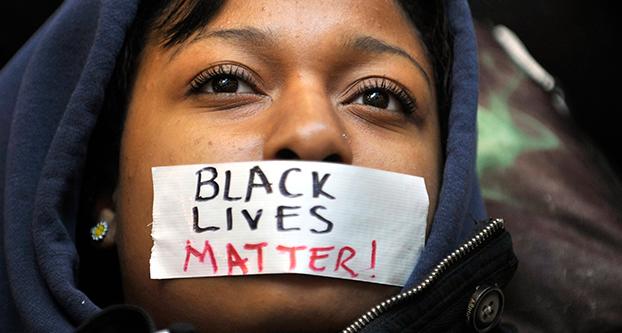Why do we say Black Lives Matter? Because in our society, historically and presently, they haven’t, and don’t. That is not to say that they shouldn’t. They do. What it is saying is that the current society holds little regard for the lives of one facet of its population. It is commentary on an all too common issue in America: racial inequity.
The proof comes historically from African Americans not being given personhood, not having the right to vote, or being counted as property.
In 1868, the 14th Amendment was passed, granting equal rights to African-Americans, but almost 150 years later, people are still fighting for the right to be black in America. What kind of rights do black Americans have when they are afraid to go outside at night? When the commonplace traffic stop could be the end of their lives?
While the civil rights movement of the 1950s and ‘60s did wonders in raising political awareness, this conversation is not over. Black Americans still face cultural inequality in this society.
Sixty years after Emmett Till is beaten, shot and lynched for hitting on a white woman, Freddie Gray is beaten into a coma by six cops for carrying a knife. He dies a week later of spinal damage. Please tell me again how all lives matter. Tell me how 60 years of progress keeps them from dying, undeservedly.
Idealistically all lives matter, yes. And the sky is blue, and Beyoncé is awesome. Tell me something I don’t know.
I respectfully dissent from the idealistic nature of the statement “all lives matter.” It just is not true in this society. If black lives mattered as much as white lives in America, so many more black Americans would walk the streets free or even just walk the streets alive. There would be accountability for brutal, racist actions and justice for the victims of hate crimes.
The ingrained fear of black bodies keeps African-Americans incarcerated and gets them brutally killed under the guise of “personal safety,” as if personal safety did not extend to black America.
Saying all lives matter does not solve the problem. It is not actually saying anything at all. It sheds no light on the issues at hand and undermines the movement. It is a broad generalization that harms people currently experiencing racism.
The movement has had fingers pointed at it and has been accused of being racists itself, only acknowledging black lives over white lives. This premise is fallacious and is the result of a misunderstanding of the movement.
When we say “Black Lives Matter,” it is a way of saying “black lives matter, also.” The dropping of “also” is a means of garnering attention and awareness. It is shock value to get people talking. It is not to subvert the value of any group. Don’t worry; your privilege is safe.
So when you say “all lives matter” as a response to the Black Lives Matter movement, you are invalidating the past horrors and the present inequalities. You have washed over the death of Mike Brown. You’ve shot him 12 times while he was unarmed. You’ve choked Eric Garner over a pack of cigarettes. You’ve slammed the handcuffs on Sandra Bland for not using her turn signal.
Stop invalidating these experiences by ignoring the reality of inequity. Saying that “all lives matter” perpetuates the dismissal of black lives.
I’ll say all lives matter when the black community is no longer feared. I will say it when police officers are finally held accountable for their trigger-happy idiosyncrasies and when black lives matter more to than just the black community.
The stifling racism is choking us; I can’t breathe, America.





Brett • Sep 16, 2015 at 12:25 pm
I don’t understand the jump from the comment of “Hey – I think that everyone matters” to invalidating “past horrors and present inequalities”. Some of these situations require a deeper dive by way of investigations, but why are so many hopping on the case of people who are career criminals, or are being approached by a police officer because of them being suspected of committing a crime? Why hasn’t the “educating” of mass society in these situations been that of informing people that choices sometimes have awful consequences? If police officers, or anyone else, are unjustified in how they act towards other people (there are many cases of this, and they should be prosecuted to the fullest extent of the law) they should be dealt with. However, committing crimes puts individuals in conflict with law enforcement. (NOTE – I am NOT talking about cases where no crime was committed or suspected.) This doesn’t justify police to act with disregard, but it certainly should be noted when these individuals are praised as civil rights advocates or examples. Using them in the same sentence as Rosa Parks, MLK Jr., and James Meredith is a travesty. Justifying the execution of police officers as was chanted in Minneapolis in retaliation is despicable. What does this “movement” have by way of comment about black on black crime that is taking FAR more black lives than any police officers? It is a fact that young black men and women are much safer dealing with police and in police custody than on the crime-plagued streets of major US cities.
Randy Denney • Nov 4, 2015 at 12:31 pm
Well said. It appears though, that from the number of comments on this article, it was only read by the two of us!